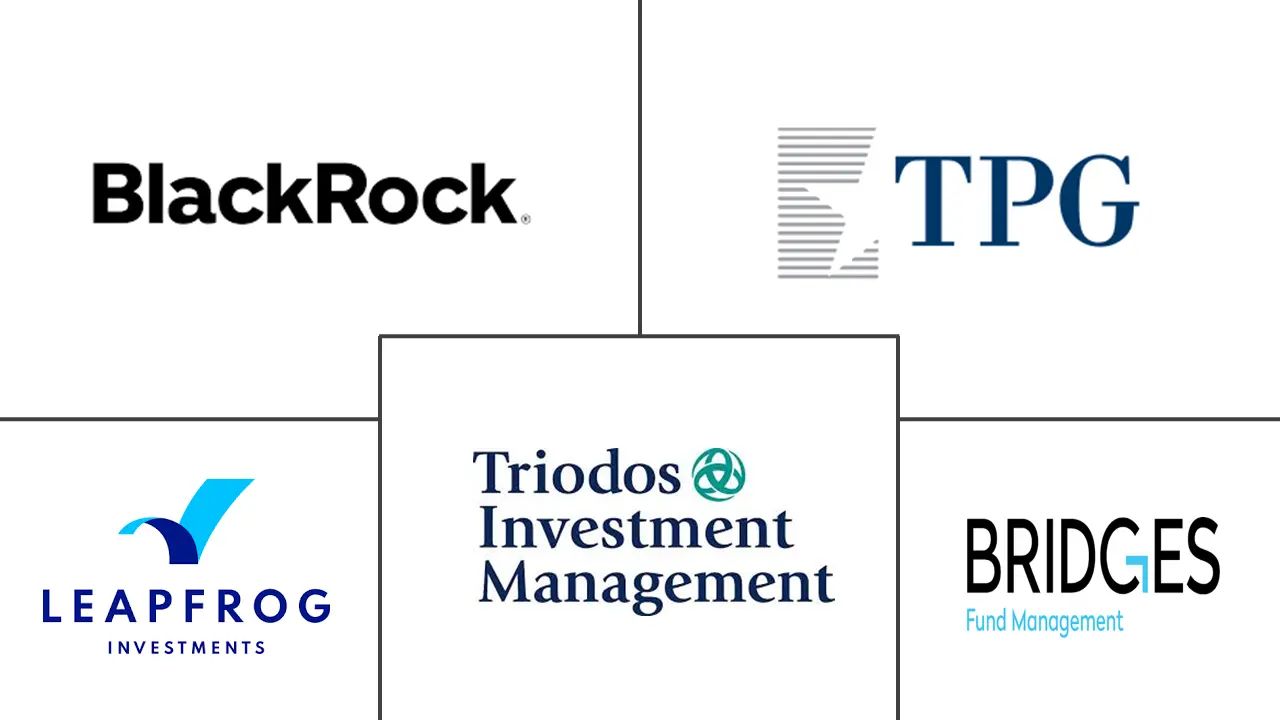
In the fast-paced, ever-evolving world of business, the pursuit of knowledge is not merely an advantage—it is an absolute necessity. As former Secretary of Defense Jim Mattis eloquently put it, “If you haven’t read hundreds of books, you are functionally illiterate, and you will be incompetent, because your personal experiences alone aren’t broad enough to sustain you.” This powerful sentiment underscores a truth deeply embraced by top business leaders: reading is the bedrock of continuous growth and sustained success.
While new challenges constantly emerge, demanding fresh perspectives and innovative solutions, certain fundamental principles remain timeless. It’s why many of the most influential figures in industry and entrepreneurship don’t just read the latest releases; they frequently revisit foundational texts that offer enduring wisdom. These aren’t just books to be read once and shelved; they are trusted mentors, providing continuous guidance on everything from managing change and mastering finance to cultivating exceptional leadership and fostering dynamic organizational cultures.
This article delves into the essential reading lists of today’s most insightful business minds. We’ll explore a curated selection of books—from timeless parables to cutting-edge analyses—that provide deep, actionable insights for navigating complex business landscapes. These are the texts that inspire, educate, and offer fresh angles on persistent problems, demonstrating that the quiet act of reading can be the most potent driver of professional and personal development.
1. **Who Moved My Cheese by Dr Spencer Johnson**At just 96 pages, *Who Moved My Cheese* is a remarkably concise yet profoundly impactful book, making it an ideal read for even the busiest business leader seeking clarity on a fundamental aspect of organizational life. Its brevity allows for quick digestion, often on a morning commute, yet its lessons resonate deeply and persist long after the final page. The book adopts a parable format, unfolding within a maze navigated by two mice, Sniff and Scurry, and two mouse-sized humans, Hem and Haw.
This simple narrative skillfully explores the characters’ distinct relationships with the cheese, which serves as a powerful metaphor. Within a business context, this ‘cheese’ can represent various components of our professional lives, such as our jobs, established career paths, specific industry sectors, or even the market conditions we operate within. By presenting these tangible elements as a metaphorical ‘cheese,’ the book universalizes the experience of confronting significant shifts in our professional environment.
The core of the story revolves around the multifaceted benefits of embracing change, a concept that can prove particularly challenging for certain individuals and organizations. It highlights the diverse reactions to change, from proactive adaptation to stubborn resistance, and illustrates the ultimate advantages of flexibility. This makes it an invaluable resource for understanding the fundamentals of change dynamics not only in a business environment but also in how one navigates and benefits from transitions in their personal life.
Read more about: Tony Roberts, Urbane Stage and Screen Veteran, Dies at 85: A Life Defined by Versatility and Woody Allen Collaborations

2. **The Changing World Order by Ray Dalio**For any leader aiming to skillfully navigate the complexities of the modern business world, Ray Dalio stands out as an exceptional example. As a renowned investor and co-chief investment officer of Bridgewater Associates, the world’s largest hedge fund, since 1985, Dalio brings a wealth of practical experience and macro-level understanding to his work. His insights are particularly vital in an era defined by rapid geopolitical and economic shifts.
In the most recent addition to his acclaimed *Principles* series, Dalio embarks on an ambitious exploration of historical patterns. He meticulously analyzes previous economic and political periods, delving into the cyclical forces that have underpinned the rise and fall of major global powers, including the British, Dutch, and American empires. This comprehensive historical perspective provides a critical framework for understanding the long-term drivers of global change.
Beyond merely dissecting the past, Dalio also critically casts his gaze towards the future. He thoughtfully examines why the times ahead may exhibit trends remarkably similar to those that have unfolded in previous lifetimes. This forward-looking analysis offers business leaders an indispensable tool for anticipating potential shifts, adapting strategies, and preparing for the next iteration of the ever-evolving global landscape, making it a crucial read for strategic foresight.
3. **Rich Dad Poor Dad by Robert T Kiyosaki***Rich Dad Poor Dad* is widely considered a truly phenomenal and foundational text for anyone seeking to expand their financial acumen, earning its place as a perennial favorite among business leaders and aspiring entrepreneurs alike. The book ingeniously discusses themes of wealth management by presenting a contrasting narrative through the author’s two “Dads”: his best friend’s father, who embodies the ‘Rich Dad’ mindset, and his own father, who represents the ‘Poor Dad’ perspective.
This dual perspective allows Kiyosaki to illustrate fundamental differences in financial philosophy, investment strategies, and attitudes towards money and work. It moves beyond conventional wisdom to challenge deeply ingrained beliefs about earning and saving. The book covers a wide spectrum of critical topics, ranging from the fundamental concept of making your money actively work for you, rather than solely working for money, to emphasizing the paramount importance of financial literacy in achieving lasting prosperity.
Through compelling anecdotes and straightforward explanations, Kiyosaki imparts several powerful and actionable lessons about effective money management. He advocates for financial education outside of traditional schooling, promoting asset accumulation over liability acquisition and the creation of income-generating businesses. This makes *Rich Dad Poor Dad* an indispensable read not only for business leaders looking to optimize their financial strategies but also for anyone genuinely interested in significantly expanding their financial knowledge and achieving greater independence.
Read more about: Robert Kiyosaki’s 10 Blueprint Ideas for a Stronger, Smarter Retirement Future

4. **Good To Great by Jim Collins***Good to Great* stands as another truly phenomenal contribution from Jim Collins, an author renowned for his incisive research into organizational excellence, including the classic *Built to Last*. The genesis of this influential book emerged from Collins’s profound desire to unravel a critical question: what distinguishing factors enable some businesses to achieve sustained success and greatness, while others, operating in similar conditions, merely fail or remain mediocre?
To rigorously address this complex inquiry, Collins assembled a dedicated team of 21 researchers. Together, they embarked on an exhaustive five-year study, meticulously analyzing companies that successfully transitioned from being merely ‘good’ to demonstrably ‘great,’ comparing them against a control group of companies that did not make such a leap. This rigorous, data-driven approach lends immense credibility and practical weight to the book’s findings, distinguishing it from purely theoretical business literature.
The culmination of this extensive research is summarized in this fantastic book, which outlines a number of crucial business characteristics and leadership principles that consistently determined an organization’s ability to make the transition from good to great. These concepts, such as Level 5 Leadership, Hedgehog Concept, and a Culture of Discipline, provide actionable frameworks for improvement. Consequently, the insights contained within *Good to Great* are invaluable, and it is widely believed that all business leaders would profoundly benefit from dedicating time to study and internalize its lessons.
Read more about: The Ultimate Status Symbol: A Deep Dive into the 15 Most Valuable Number Plates Acquired by Global Visionaries and High-Net-Worth Individuals
5. **Delivering Happiness by Tony Hsieh**Last but certainly not least on this initial list of essential reads is *Delivering Happiness* by Zappos’s former CEO, Tony Hsieh. This book masterfully outlines the late entrepreneur’s extraordinary rise to success, offering an intimate glimpse into the mind of a leader who redefined modern retail. Hsieh doesn’t just recount his journey; he illustrates with compelling clarity how he meticulously constructed a billion-dollar retail business, setting new benchmarks for customer experience and employee engagement.
Hsieh’s philosophy, brilliantly articulated throughout the book, places an emphatic emphasis on prioritizing happiness—not as a secondary benefit, but as an essential, foundational element of business strategy. He demonstrates how an unwavering commitment to a high level of customer satisfaction, coupled with a genuine investment in employee wellness and cultural cohesion, can create a powerful competitive advantage. This approach transcends traditional business metrics, proving that emotional connections drive sustainable growth.
The narrative of *Delivering Happiness* reveals that fostering joy, both internally among staff and externally with customers, was not merely a feel-good initiative but a core operational tenet that directly contributed to Zappos’s market dominance. Hsieh’s insights challenge conventional business wisdom by illustrating how cultivating a positive, people-centric environment is not just ethical, but profoundly profitable. This makes the book a powerful guide for any leader aspiring to build a business that is not only financially successful but also deeply resonant and genuinely beloved.
6. **Management as Music by Matt Allen**In the contemporary business landscape, leaders frequently voice a shared set of challenges: the persistent need for alignment across diverse teams, the imperative for agility in the face of rapid change, and the constant demand for inspiration to drive innovation. Matt Allen’s *Management as Music* offers a remarkably fresh and intuitive framework to address these very issues. His central idea—to manage the way great ensembles make music—is both memorable and surprisingly actionable across various organizational functions.
Allen masterfully distills complex leadership concepts into musical metaphors, providing practical applications for everyday management. He introduces the concept of ‘story as melody,’ urging leaders to craft a clear, repeatable narrative for their strategy, allowing teams to ‘hum’ the vision without the need for endless slides. This emphasis on a cohesive, easily internalized strategic melody ensures that everyone is playing from the same sheet, fostering profound alignment.
The book further explores ‘humility of harmony,’ advocating for a balance between strong individual voices and the collective need for listening and blending within a team. It recognizes that true synergy emerges when distinct talents contribute to a greater whole, much like a well-arranged musical piece. Moreover, Allen posits that ‘dissonance can be used intentionally,’ acknowledging that healthy tension, when resolved constructively, is not a problem but a powerful driver of progress and creative solutions.
Allen also introduces the idea of ‘modulating for change,’ encouraging leaders to plan organizational transitions with the same care and intentionality that a composer uses to modulate keys in a piece of music. This involves clearly signaling changes, scaffolding the transition process, and ensuring a smooth, well-executed landing. The framework also advocates for ‘safe spaces that enable creativity,’ akin to pentatonic scales where risks rarely sound ‘wrong,’ fostering an environment where bold ideas can flourish.
A practical takeaway from Allen’s work suggests assigning roles like ‘melody’ (vision owner), ‘harmony’ (cross-functional integrator), ‘rhythm’ (operations cadence), and ‘counterpoint’ (designated challenger) in leadership meetings. He recommends closing with a ‘rest’—a brief period of silent reflection and capture—before decisions are made, emphasizing that pauses make the important parts land. This innovative approach offers a comprehensive toolkit for building high-performing, inspired teams.
Read more about: Meta’s Metaverse Mayhem: Unpacking the 14 Critical Problems Plaguing Zuckerberg’s Billions
7. **The Thinking Machine by Stephen Witt**In an era increasingly defined by the rapid advancements and pervasive influence of artificial intelligence, understanding the foundational technologies and the companies driving them is paramount for any forward-thinking business leader. *The Thinking Machine* by Stephen Witt provides a propulsive and illuminating inside look into Nvidia and its visionary CEO, Jensen Huang. This book is not just a company profile; it’s a deep dive into the enterprise that is fundamentally shaping the AI hardware era.
Witt’s narrative expertly unpacks the journey and strategic decisions that have positioned Nvidia at the forefront of the AI revolution. It offers readers a unique perspective on the engineering prowess, relentless innovation, and market foresight that have allowed Jensen Huang to build a company synonymous with cutting-edge graphics processing and, more recently, the computational backbone of artificial intelligence. Understanding their approach offers critical lessons in market dominance.
A key takeaway from *The Thinking Machine* for business leaders is the crucial insight that simply purchasing tools is insufficient for long-term strategic advantage. Instead, the book implicitly advocates for building ‘moats’—proprietary software ecosystems, much like Nvidia’s CUDA. This software platform has effectively transformed their hardware into an indispensable foundation for AI development, locking in developers and creating a formidable competitive barrier. This strategy of deep integration and platform creation is invaluable for any company seeking to establish enduring relevance in rapidly evolving technological landscapes.
Having explored the foundational texts that shape strategic thinking and organizational resilience, we now turn our attention to the dynamic forces at play in contemporary business. This section delves into critical reads that address the nuanced challenges of fostering equitable workplaces, cultivating vibrant team cultures, driving innovation, and navigating the intricate landscape of global markets and economic power. These eight influential books offer actionable strategies and fresh perspectives for modern leaders, ensuring they are equipped not just to react, but to proactively shape their organizations and industries.
Read more about: 12 Celebrities Who Quit Social Media to Focus on Indie Film Production
8. **House of Huawei by Eva Dou**For any leader grappling with the complexities of global supply chains and geopolitical strategy, Eva Dou’s *House of Huawei* offers an indispensable, deeply reported history. This book provides a rare insider’s look into China’s most consequential technology company. It meticulously unpacks Huawei’s rise and its profound implications for international trade, technological standards, and national security agendas worldwide.
Dou’s narrative is crucial for understanding the enterprise that has positioned itself at the nexus of global tech competition. She reveals how Huawei’s innovative strength and strategic decisions have significantly reshaped market dynamics, presenting both opportunities and formidable challenges. The book highlights the intricate web of interdependencies and rivalries that define the current technological landscape.
The critical takeaway for business leaders is the urgent need to map their exposure to state-aligned vendors within their own operations and supply chains. Furthermore, it underscores the importance of scenario-planning for potential sanctions and standards shocks. This strategic foresight is paramount for mitigating risks and maintaining competitive advantage in an increasingly politicized global economy.
Read more about: From Dorm Room to Digital Giant: 14 Mind-Blowing Facts About Facebook’s Epic Journey, Features, and Fiercest Fights

9. **Abundance by Ezra Klein & Derek Thompson**In an era where many perceive scarcity, *Abundance* by Ezra Klein and Derek Thompson presents a compelling case for accelerating growth and building more, faster. This insightful book argues that significant bottlenecks in key sectors like housing, energy, and innovation are needlessly hindering progress. It challenges leaders to re-examine the systemic barriers preventing a more prosperous and productive society.
The authors meticulously dissect the root causes of these bottlenecks, ranging from cumbersome regulatory processes to slow-moving procurement systems. They reveal how these administrative and policy hurdles create friction, stifling potential and delaying vital advancements. Understanding these inhibitors is the first step toward unlocking greater societal and economic output.
A powerful takeaway from *Abundance* is the imperative to treat permitting and procurement challenges as ‘product problems.’ This means applying agile methodologies to identify specific blockers, designing and shipping policy pilots, and rigorously measuring their adoption and impact. By doing so, leaders can foster environments that truly enable innovation and ensure widespread access to essential resources.
10. **Breakneck by Dan Wang**Dan Wang’s *Breakneck* offers a remarkably sharp and focused lens on the intricate dynamics of U.S.-China geoeconomics. The book posits that a deep understanding of ‘engineering cultures’ within these nations matters far more than fleeting headlines or superficial political rhetoric. It challenges leaders to look beyond immediate news cycles to grasp the fundamental drivers of economic power.
Wang delves into what constitutes a robust “engineering culture,” emphasizing its foundational importance. This involves cultivating strong talent pipelines, developing deep and resilient supplier networks, and investing consistently in learning curves across industries. These capabilities, he argues, are the true arbiters of long-term national and corporate competitiveness.
The critical insight for business leaders is the need to invest in actual capability, rather than merely relying on capital budgets. This means prioritizing the development of internal expertise and fostering enduring relationships with suppliers and innovators. Such an approach builds a sustainable competitive advantage, enabling organizations to navigate complex geopolitical shifts with greater agility and strength.
Read more about: Hold Up, Did That Just Happen?! The 14 Wildest & Quickest Hollywood Engagements That Still Make Zero Sense

11. **Chokepoints by Edward Fishman**Edward Fishman’s *Chokepoints* delivers a bracing investigation into how sanctions and the strategic flows of economic power are fundamentally re-wiring globalization. The book meticulously illustrates the profound impact of these tools on international trade, financial systems, and diplomatic relations. It serves as an essential guide for leaders seeking to understand the evolving landscape of global economic influence.
Fishman’s narrative details how economic statecraft is being increasingly deployed to achieve geopolitical objectives, creating new vulnerabilities and strategic junctures. He unpacks the mechanisms through which economic power is projected, influencing everything from technology transfer to access to critical resources. This makes *Chokepoints* a vital read for comprehending modern international relations.
For business leaders, the book offers a crucial, actionable takeaway: the necessity of integrating ‘sanctions resilience’ into their enterprise risk registers. This involves a comprehensive audit of payment systems, logistics networks, and intellectual property exposure. Proactive measures are key to mitigating the disruptive effects of economic coercion and safeguarding organizational stability in a volatile world.

12. **Make Work Fair by Iris Bohnet & Siri Chilazi***Make Work Fair* by Iris Bohnet and Siri Chilazi provides evidence-based solutions for creating genuinely equitable workplaces, moving beyond what the authors term ‘performative DEI.’ This vital book challenges conventional approaches to diversity, equity, and inclusion, advocating for strategies rooted in rigorous research and proven effectiveness. It’s a must-read for leaders committed to impactful change.
The authors critically examine the limitations of traditional ‘awareness’ trainings, often finding them insufficient for driving real systemic change. Instead, they champion a transformative approach centered on ‘decision-design.’ This method focuses on re-engineering organizational processes to inherently reduce bias and promote fairness at every level.
Practical applications of decision-design include implementing structured interviews with standardized questions, utilizing calibrated rubrics for performance evaluations, and ensuring transparent promotion criteria. By embedding fairness into the very fabric of decision-making, leaders can create truly inclusive environments that deliver measurable equity outcomes, fostering a culture where all employees can thrive.

13. **Today Was Fun by Bree Groff**Bree Groff’s *Today Was Fun* stands as a humane and eminently practical guide for leaders aiming to make work genuinely fulfilling and enjoyable, stripping away the ‘hustle theatrics’ that often lead to burnout. This book offers a refreshing perspective on cultivating positive team dynamics and sustained engagement, emphasizing the intrinsic value of joy in the workplace.
Groff acknowledges the pervasive challenge of disengagement and exhaustion in modern work environments. She provides actionable insights into how leaders can counteract these trends by intentionally designing experiences that re-energize teams and foster a sense of purpose. The book helps leaders understand that a positive culture is not a luxury, but a strategic asset.
A key concept is ‘thin-slicing’ joy: embedding small, impactful micro-rituals into daily team cadences. This could involve simple personal introductions at the start of meetings, dedicated ‘buddy walks,’ or brief Friday demos celebrating successes. These deliberate acts help rebuild energy, foster genuine connection, and create a workplace where employees feel valued and motivated.

14. **Patriarchy Inc. by Cordelia Fine**Cordelia Fine’s *Patriarchy Inc.* offers a witty, yet rigorously researched, teardown of common Diversity, Equity, and Inclusion (DEI) myths, while simultaneously providing robust tools for achieving genuine equity. This book is an essential read for any leader who seeks to move beyond superficial gestures and implement truly effective strategies for workplace fairness.
Fine meticulously dissects prevalent misconceptions surrounding gender and equity in professional settings. She reveals how deeply ingrained societal assumptions can undermine even well-intentioned DEI initiatives, highlighting the need for a more informed and incisive approach. Her work provides a clear-eyed view of the systemic challenges that remain.
The book delivers a crucial message for leadership: equity should not be framed or sold merely as a ‘performance hack’ to boost metrics. Instead, it must be measured as a fundamental fairness outcome, backed by real accountability and strategic resource shifts. This shift in perspective ensures that efforts toward equity are authentic, sustainable, and capable of generating profound, lasting impact.

15. **Click: How to Make What People Want by Jake Knapp with John Zeratsky**From the acclaimed creators of *Sprint*, Jake Knapp and John Zeratsky’s *Click: How to Make What People Want* provides crisp, actionable recipes for validating and building products that customers will genuinely love. This book is an invaluable resource for innovators and product leaders looking to reduce risk and increase the likelihood of market success.
Knapp and Zeratsky outline a streamlined methodology for deeply understanding customer needs and preferences before committing significant resources to development. Their approach helps teams move beyond assumptions, ensuring that every feature and function built truly resonates with the target audience and solves real problems. This focus on validated learning is paramount for efficient innovation.
The book’s signature contribution is the ‘one-week “click test” sprint,’ a powerful framework designed to quickly validate ideas. This sprint involves clearly defining the ‘job-to-be-done,’ storyboarding potential solutions, rapidly prototyping, conducting five targeted user tests, and then making a decisive choice based on the gathered feedback. This agile process empowers teams to innovate with confidence and precision.
As we conclude this exploration of essential reads for business leaders, it’s clear that the journey of continuous learning is as varied as it is vital. From understanding global economic shifts and fostering fair workplaces to sparking team joy and driving innovation, the insights gleaned from these pages are more than just theories; they are actionable blueprints for navigating the complexities of the modern world. Embracing these perspectives empowers leaders not only to refine their problem-solving skills but also to cultivate resilient, dynamic, and genuinely impactful organizations ready for whatever challenges lie ahead. The quiet power of a book, in the hands of a curious leader, remains an unparalleled catalyst for growth.










